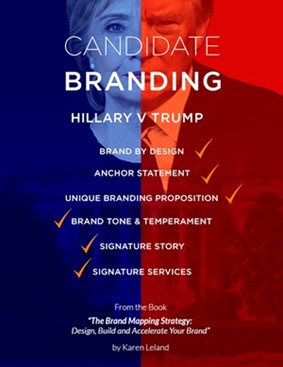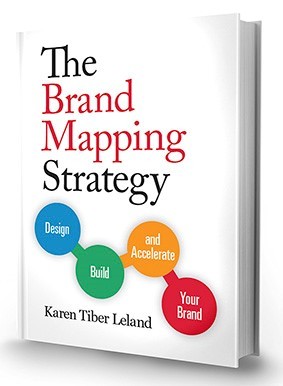Mentoring and Lifelong Learning
Professionals who succeed the most are the products of mentoring. I heartily endorse that find a great mentor. I have had many excellent ones in my long career and have in turn mentored hundreds of others.
The mentor is a resource for business trends, societal issues and opportunities. The mentor becomes a role model, offering insights about their own life-career. The mentor is an advocate for progress and change. Such work empowers the mentee to hear, accept, believe and get results. The sharing of trust and ideas leads to developing business philosophies.
The mentor endorses the mentee, messages ways to approach issues, helps draw distinctions and paints pictures of success. The mentor opens doors for the mentee. The mentor requests pro-active changes of mentee, evaluates realism of goals and offers truths about path to success and shortcomings of mentee’s approaches. This is a bonded collaboration toward each other’s success. The mentor stands for mentees throughout their careers and celebrates their successes. This is a lifelong dedication toward mentorship… in all aspects of one’s life.
The most significant lessons that I learned in my business life from mentors, verified with experience, are shared here:
- You cannot go through life as a carbon copy of someone else.
- You must establish your own identity, which is a long, exacting process.
- As you establish a unique identity, others will criticize. Being different, you become a moving target.
- People criticize you because of what you represent, not who you are. It is rarely personal against you. Your success may bring out insecurities within others. You might be what they cannot or are not willing to become.
- If you cannot take the dirtiest job in any company and do it yourself, then you will never become “management.”
- Approach your career as a body of work. This requires planning, purpose and commitment. It’s a career, not just a series of jobs.
- The person who is only identified with one career accomplishment or by the identity of one company for whom he-she formerly worked is a one-hit wonder and, thus, has no body of work.
- The management that takes steps to “fix themselves” rather than always projecting problems upon other people will have a successful organization.
- It’s not when you learn. It’s that you learn.
- Many people do without the substantive insights into business because they have not really developed critical thinking skills.
- Analytical and reasoning skills are extensions of critical thinking skills.
- You perform your best work for free. How you fulfill commitments and pro-bono work speaks to the kind of professional that you are.
- People worry so much what others think about them. If they knew how little others thought, they wouldn’t worry so much. This too is your challenge to frame how they see you and your company.
- Fame is fleeting and artificial. The public is fickle and quick to jump on the newest flavor, without showing loyalty to the old ones, especially those who are truly original. Working in radio, I was taught, “They only care about you when you’re behind the microphone.”
- The pioneer and “one of a kind” professional has a tough lot in life. It is tough to be first or so far ahead of the curve that others cannot see it. Few will understand you. Others will attain success with portions of what you did. None will do it as well.
- Consumers are under-educated and don’t know the substance of a pioneer. Our society takes more to the copycats and latest fads. Only the pioneer knows and appreciates what he-she really accomplished. That reassurance will have to be enough.
- Life and careers include peaks and valleys. It’s how one copes during the “down times” that is the true measure of success.
- Long-term success must be earned. It is not automatic and is worthless if ill-gotten. The more dues one pays, the more you must continue paying.
- The next best achievement is the one you’re working on now, inspired by your body of knowledge to date.
- The person who never has aggressively pursued a dream or mounted a series of achievements cannot understand the quest of one with a deeply committed dream.
- A great percentage of the population does not achieve huge goals but still admires and learns from those who do persevere and succeed. The achiever thus becomes a lifelong mentor to others.
- Achievement is a continuum, but it must be benchmarked and enjoyed along the way.
These are my concluding pieces of leadership advice. Know where you are going. Develop, update and maintain a career growth document. Keep a diary of lessons learned but not soon forgotten. Learn the reasons for success and, more importantly, from failure.
Good bosses were good employees. They have keen understanding for both roles. Bad bosses likely were not ideal employees. They too are consistent in career history. Being your own boss is yet another lesson. People who were downsized from a corporate environment suddenly enter the entrepreneurial world and find the transition to be tough.
Poor people skills cloud any job performance and overshadow good technical skills. The worst bosses do not sustain long careers at the top. Their track record catches up with them, whether they choose to acknowledge it or not.
Good workers don’t automatically become good bosses. Just because someone is technically proficient or is an exemplary producer does not mean that he-she will transition to being a boss. The best school teachers do not want to become principals, for that reason. Good job performers are better left doing what they do best. Administrators, at all levels, need to be properly trained as such, not bumped up from the field to do something for which they have no inclination.
Truth and ethics must be woven into how you conduct business. If you do not “walk the talk,” who will? Realize that very little of what happens to you in business is personal. Find common meeting grounds with colleagues. The only workable solution is a win-win.
Leadership and executive development skills are steadily learned and continually sharpened. One course or a quick-read book will not instill them. The best leaders are prepared to go the distance. Professional enrichment must be life-long. Early formal education is but a starting point. Study trends in business, in your industry and in the industries of your customers.
People skills mastery applies to every profession. There is no organization that does not have to communicate to others about what it does. The process of open company dialogs must be developed to address conflicts, facilitate win-win solutions and further organizational goals.
About the Author

Hank’s latest book functions as a ‘PDR of business,’ a view of Big Picture strategies, methodologies and recommendations. This is a creative way of re-treading old knowledge to enable executives to master change rather than feel as they’re victims of it.
Power Stars to Light the Business Flame is now out in all three e-book formats: iTunes, Kindle, and Nook.

 Tony J. Selimi is internationally known as a human behavior, cognition and emotional intelligence expert. He is a keynote speaker, entrepreneur and the creator of the TJS Evolutionary Method. Tony is an award-winning and international best-selling author of
Tony J. Selimi is internationally known as a human behavior, cognition and emotional intelligence expert. He is a keynote speaker, entrepreneur and the creator of the TJS Evolutionary Method. Tony is an award-winning and international best-selling author of  Below is an examination of both candidates’ personal branding successes, challenges and resulting lessons for us all in six specific areas. The success of any brand — in business, politics or otherwise — boils down to how the brand performs across these six key dimensions. Each dimension, including exactly how each candidate fared therein as well as the correlated Personal Brand Takeaways, can help other enterprising professionals achieve in kind.
Below is an examination of both candidates’ personal branding successes, challenges and resulting lessons for us all in six specific areas. The success of any brand — in business, politics or otherwise — boils down to how the brand performs across these six key dimensions. Each dimension, including exactly how each candidate fared therein as well as the correlated Personal Brand Takeaways, can help other enterprising professionals achieve in kind. 2. Anchor Statement. What is the go-to description of who you are and what you do? This is sometimes referred to as an elevator pitch.
2. Anchor Statement. What is the go-to description of who you are and what you do? This is sometimes referred to as an elevator pitch. Karen Leland is CEO of Sterling Marketing Group, a branding and marketing strategy and implementation firm helping CEO’s, businesses and teams develop stronger personal and business brands. Clients include AT&T, American Express, Marriott Hotels, Apple Computer, LinkedIn and Twitter. She is the best-selling author of 9 books, including her most recent title,
Karen Leland is CEO of Sterling Marketing Group, a branding and marketing strategy and implementation firm helping CEO’s, businesses and teams develop stronger personal and business brands. Clients include AT&T, American Express, Marriott Hotels, Apple Computer, LinkedIn and Twitter. She is the best-selling author of 9 books, including her most recent title,  Anne Deeter Gallaher is CEO of
Anne Deeter Gallaher is CEO of  Ryan McCormick is Co-Founder of Goldman McCormick Public Relations (
Ryan McCormick is Co-Founder of Goldman McCormick Public Relations (